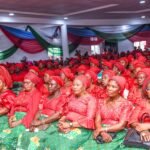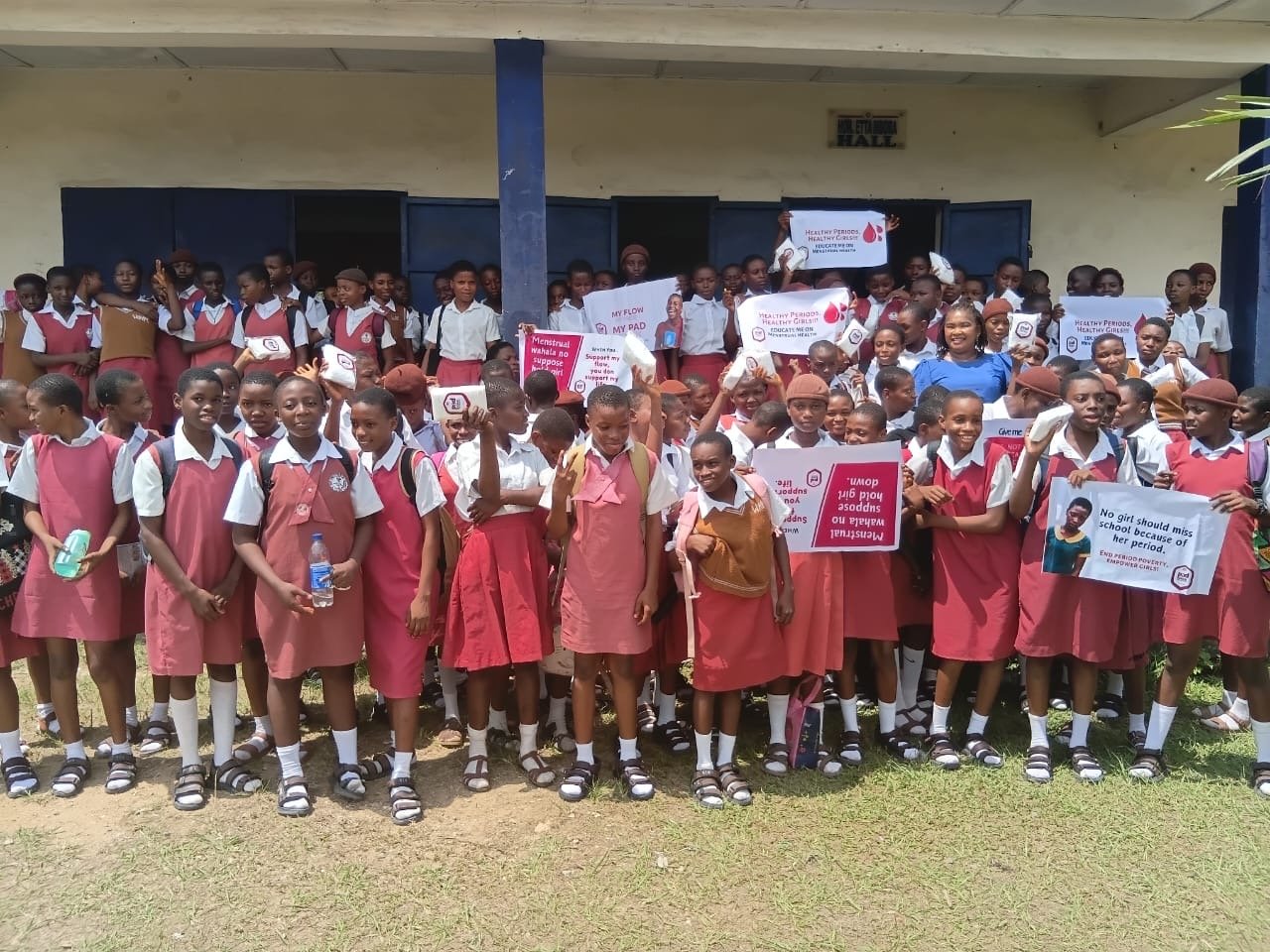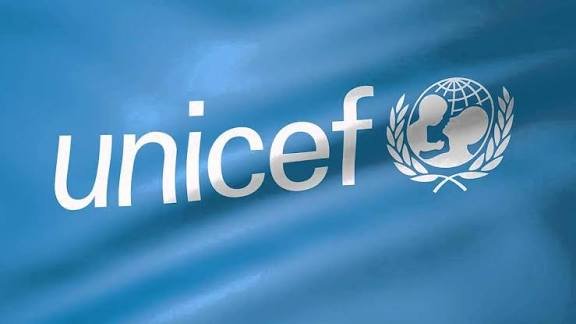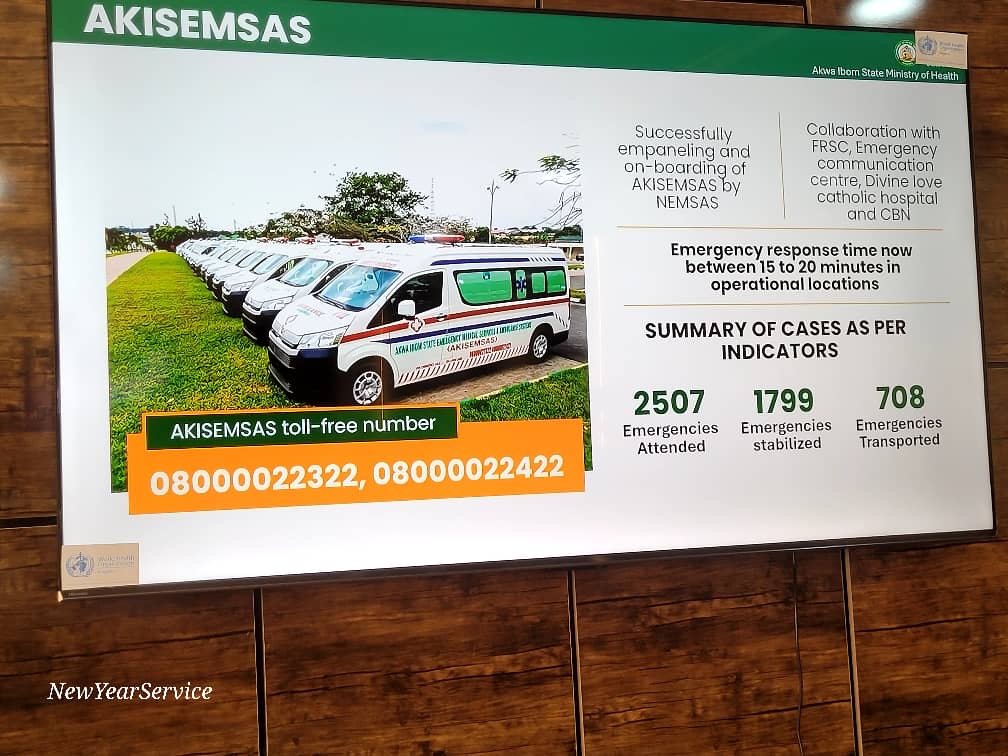By Anietie Akpan
The just concluded World Immunization Week 2025 campaign in Cross River State ended with a massive turnout.
The exercise which was monitored by Pillar Today right from the State Primary Health Care (PHC) to some facilities in Calabar Municipality and Calabar South Local Government Area of the state witnessed the large turn out of women and their babies from 0 to 23 months for the immunization.
Some of the facilities visited include. Ekpo Abasi, Mayne Avenue PHCs in Calabar South, Ediba Qua, Ikot Ishie and Ikot Ansa PHCs in Calabar Municipality.
Cooling systems, Giant generators, Solar Power systems, antigens and other materials put on ground by UNICEF with support from the state government to ensure smooth and continuous immunization procedures were seen on ground.
The field visits was a follow up to the Media Dialogue on 2025 World Immigration Week with the theme: ‘Immunization for All is Humanly Possible’ in 12 states of Abia, Akwa Ibom, Anambra, Bayelsa, Cross river, Benue, Ebonyi, Enugu, Rivers, Delta, Imo and Kogi held on Thursday, April 24, 2025 at Hotel Fidelma, Enugu, organized by United Nations Children’s Fund (UNICEF), Enugu Field Office in collaboration with Broadcasting Corporation of Abia State (BCA).
Speaking with media team that visited the State PHC at Barracks road, Calabar, on April 25, the State Immunization Officer (SIO), Mrs Charity Enya said with the support of UNICEF and the State Government immunization programmes in the state have been successful in all the 1,037 facilities offering with the antigens available there.
“We are always prepared to ensure that our children are vaccinated by age. Even those that have been missed out, we bring them in during this period, go out in search of them to get vaccinated. Our children receive immunization in 0 to 23 month. So we give them antigens like BCG, OPV, and HBV that protect our children against some diseases. So those are the antigens we give at birth once the baby is born.
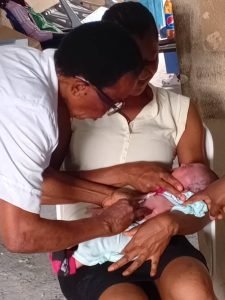
A child being immunized at Ekpo Abasi PHC during the immunization week.
“So we now encourage the mothers to come back to the facility once the children are six weeks. So when they come back to the facility, when the children are six weeks, we give them Penta-1, we give them PCV-1, we give them Penta-2, we give them PCV-1, we give them Rota.
And then it’s always four weekly. So when they come after six weeks, they come back at 10, come back at 14, and then they come back at 15. So that’s why we’ve extended to 23. So if those mothers could not bring their children when they were 23 months for measles 2, we give them that incubation period, that timeframe to also bring their children. Hence the children are within 23 months. So from 15 months to 23 months, you should bring your child to the facility to get the measles 2 vaccines”.
On effort to access the mothers, Enya said, “we go out for outreaches. We do both fixed sections and outreaches. Fixed sections, the mothers bring their children to the facilities . While the outreaches, we take the vaccination services close to their doorstep because we know that there are some hindrances. Some mothers, because of transport, they don’t have transport to go to the facilities.
“And most of them…feel reluctant going to the facilities to receive these services. So what we do, we bring the services closer to their doorsteps. We go close to them, immunize them. Any distance above two kilometers, we don’t want the mothers to stress themselves. We take the facilities to them”.
Starting the vaccination without completing means, “you have not even done anything as starting and completing is what we are looking for”, she said and advised mothers that once, “when you have commenced with the antigens that your child received when the child was born, you should ensure that the child takes it completely.
“Please come with your children, tell your neighbours, tell your friends that vaccinations are free. It’s always free. And we tell them it’s free, safe, and very effective”.
However she listed some challenges to include insufficient vaccines which could be “because of decrease in funding and before you know it, within two months we are running stock out of some major antigens”, Enya said adding that . “for some period we will not have those antigens. And you see our mothers come in and then go back without receiving services they came to the facilities for and then we will now go back when the vaccines come, to track those people, it is always an issue. Throughout last year, there were almost every or many months we were running out of stock of some certain antigens”.
She called for an increased funding so as to help health workers take vacations to the doorsteps of mothers like during the Big Catch-Up, which was heavily funded by UNICEF “we were moving from door to door and were able to reach out to so many children. When vaccination services are taken close, accessibility is very easy for them and the mothers are not thinking of transport fare to go to the facility. I think there should be increased funding for routine immunization generally”.
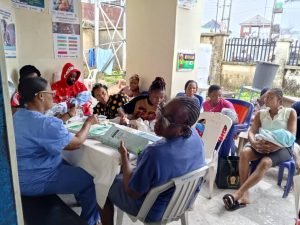
Mothers during the immunization.
Patricia Ayine, Officer in charge of Ekpo Abasi PHC, Calabar South on April 29, said, “mothers are coming out en masse to come and immunize. Some have gone, some are still sitting there waiting for us to immunize before they go. The turn out is encouraging. So we encourage mothers to turn up any time the child is due for the next appointment”.
She said that apart from the world immunization week, “we do immunization every rime from Monday to Friday, Monday which we give routine immunization”..
At Ediba Qua PHC Calabar Municipal, Mary Eyo-Nsa, the officer in charge commended UNICEF for making the immunization available as many mothers have benefited and the immunization has been a huge success.
She however raised some concerns saying some vaccines like penta were in shortage
Some mothers spoken to at some of the facilities expressed joy with the entire exercise saying it is very good for their children and it should be continued.
Mrs. Affiong Etim in Ediba said “if not of all these immunization the government and UNICEF have been giving our children free many of our children would have died because many of us will not be able to buy it. We thank God for their intervention “.





